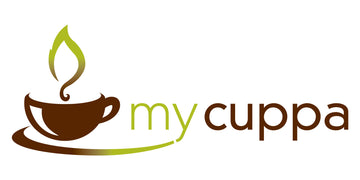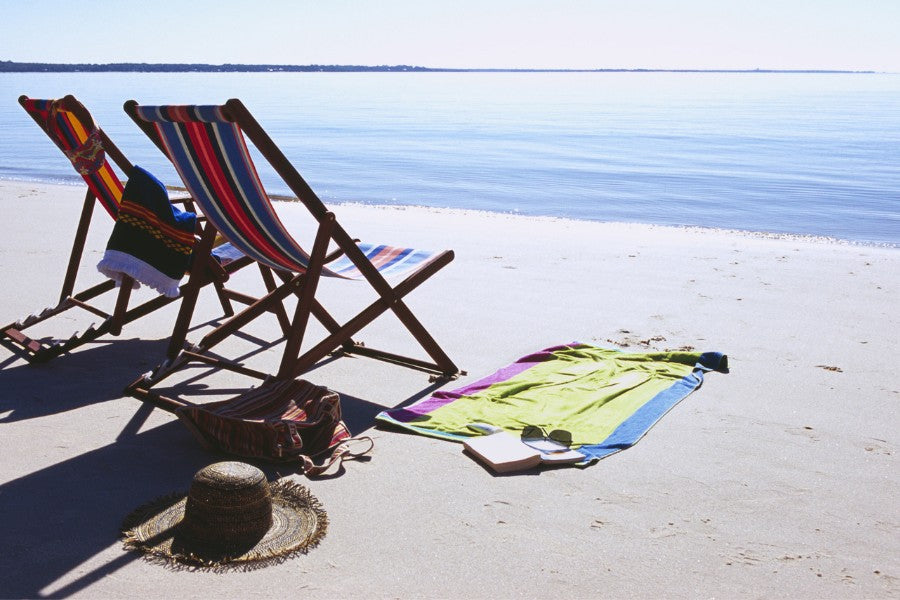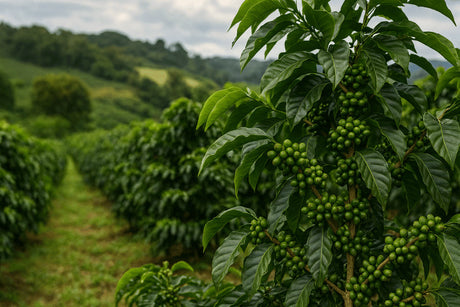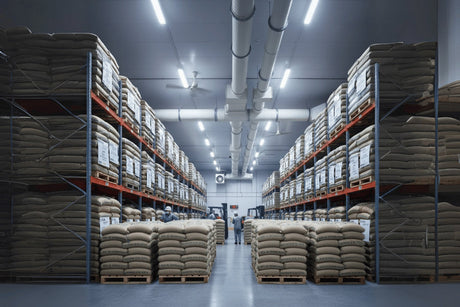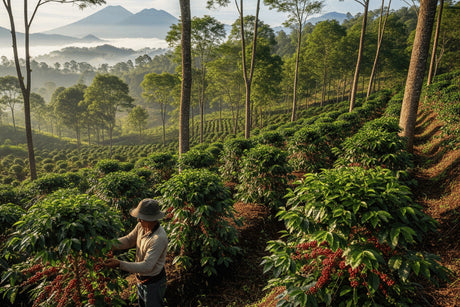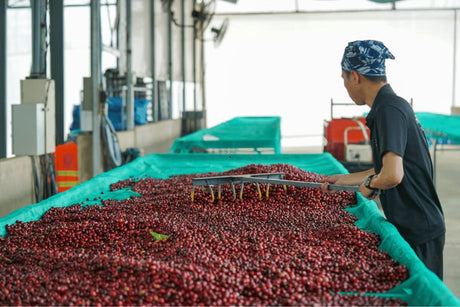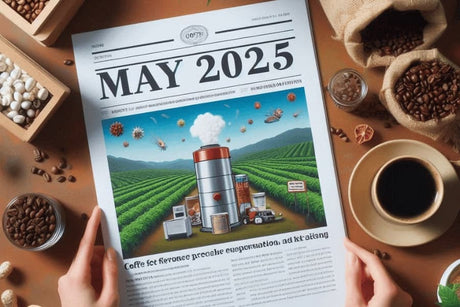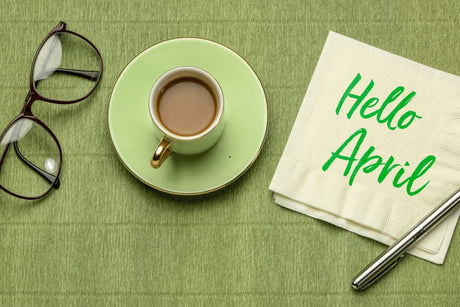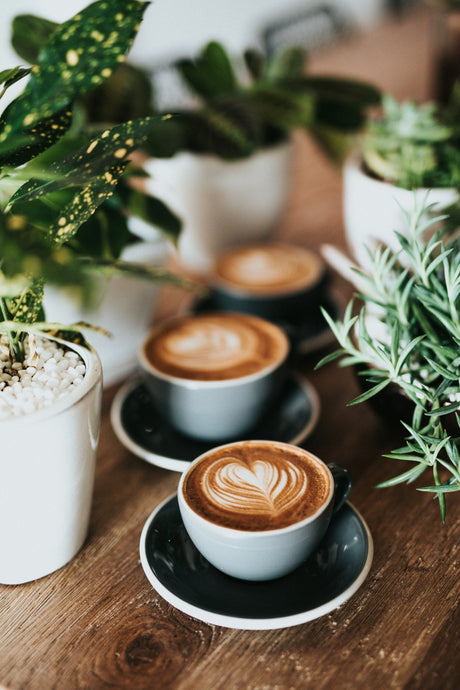mycuppa January 2024 newsletter
"Summer: two shades of blue - the sky and the ocean - and two shades of gold - the sun and the sand."- Anna de Bryt
Welcome to our subscriber newsletter.
Christmas came and went so fast that it's hard to believe we are already trying to prepare for the impact of another public holiday next week.
This festive season is the first in 17 years where shipping didn't melt down in the lead-up to Christmas or upon return from New Year. That is the best present we can receive!
Global coffee prices remain stubbornly elevated for reasons few experienced brokers can properly explain. One obvious factor are large hedge funds regularly movng into markets for short periods, throwing considerable weight around to drive commodity prices artificially to profit handsomely in games of shorts and longs.
Hopefully, hedge funds will lose interest in coffee soon and move on to something else like corn, pork bellies or crude oil. In the meantime, you, me, and the billions of coffee drinkers continue to pay a hefty premium.
This month, we take a detailed look at sustainable options for packaging freshly roasted coffee. In our article, we explain why fresh coffee is significantly different to most other ingredients and how the performance of a packaging solution remains one of the most critical elements of coffee quality. Please read how current options in eco-packaging for freshly roasted coffees continue to fall well short of the mark.
Our pick of the new arrivals over the last month is a stunning East Timor Organic lot that will please any coffee enthusiasts.
January's Secret Label is a retro-designed flavour bomb with stone fruit, rich caramel, chocolate, toffee, cocoa, milk chocolate and sticky date pudding elements.
A clean, sweet and rewarding coffee with the same exceptional qualities you have come to expect from our highly regarded Secret Label program.

Secret Label
Last month, we thoroughly enjoyed the fruity delights of an Xmas-themed coffee.
This month, we kick off the new year with a punchy, retro-designed blend of stone fruit, salted caramel, toffee, cocoa and sweet chocolate.
We were pleased with how well this combination turned out, with delicate layers reminiscent of a richly flavoured sticky date pudding.
January's Secret Label coffee has plenty of flavour, balanced acidity and excellent cut-through on milky beverages.
Grab it before the end of the month to avoid disappointment.

Eco-friendly packaging for freshly roasted coffee that works ?
According to the experts - don't hold your breath.
In this article, we take a fresh look at how the eco-packaging solutions available on the market continue to fail the most basic and simplest tests for freshly roasted coffee.
Read more about how coffee has a unique set of challenges in packaging and why we are still well short of a viable solution.

Our top pick in January 2024 - East Timor Organic
Last month, we received a new, fresh lot of East Timor Organic coffee, and it's seriously delicious.
It's our pick of the new arrivals.
What stands out most about this great-tasting coffee is the exceptionally well-balanced cup with rich flavours of caramel, pear and that desirable candy-like sweetness.
Suppose you have been a "blend" drinker looking for the right moment to dip a toe into the diverse and exciting world of single-origin coffees.
In that case, this East Timor Organic makes an excellent choice.
With plenty of flavor and yet refined acidity, which delicately sits in the background, this is a great coffee for those who add milk or dairy alternatives - allowing the caramels to transform into sweet-tasting chocolate notes.
